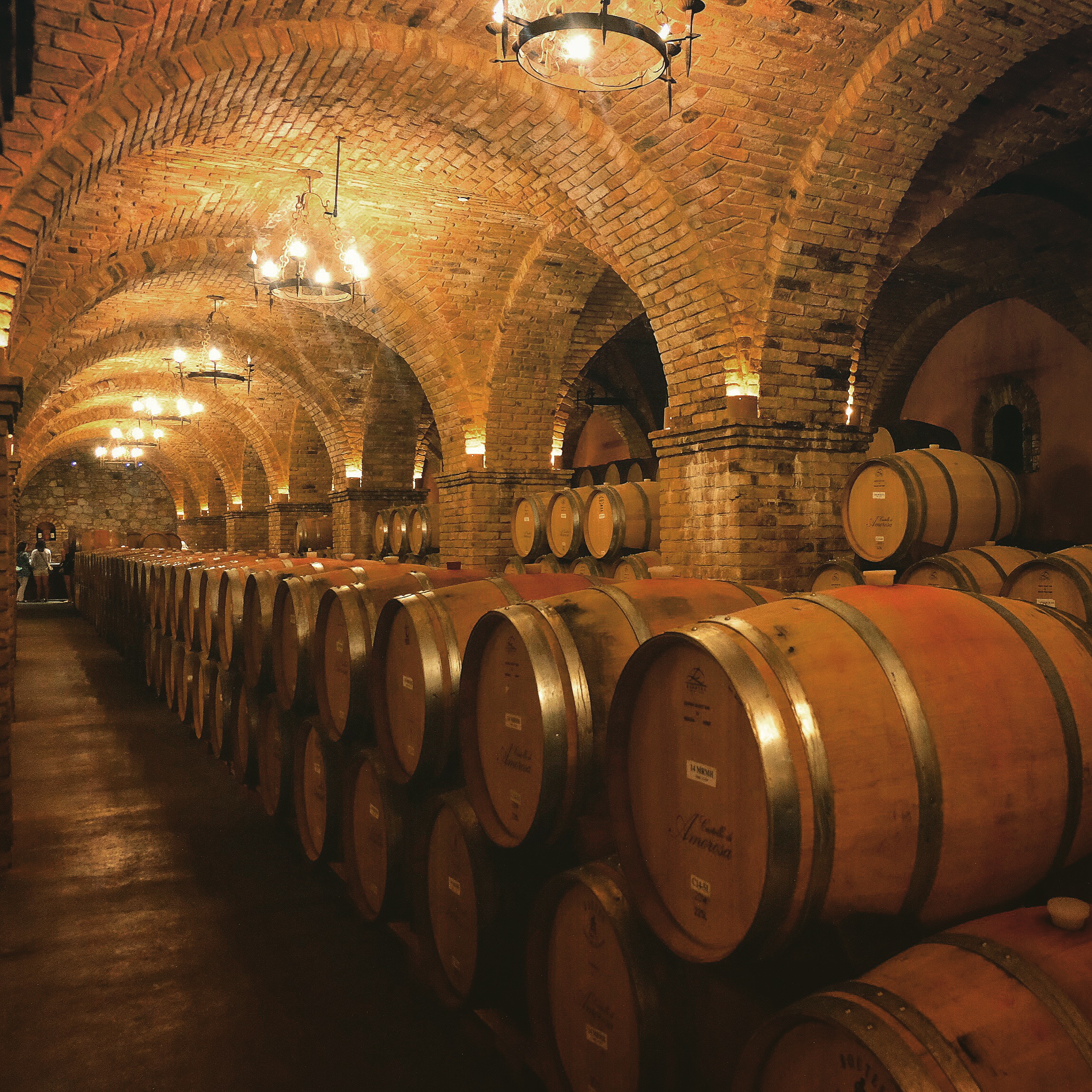Aging wine: which ones and why.
Did you know that 99% of the wine produced does not need to be aged or cellared?
This means that you don’t have to intentionally age majority of the wines you buy for any future benefits, but it also means that your wine will not expire or go bad if you wait a couple of years or so to open it up. The 1% of wine that will benefit from aging or cellaring is usually in the premium price range. If you do decide to age a wine it is important that it is stored in the right conditions. Side note: there is nothing wrong with drinking either type of wine now!
If you don’t have to age majority of the wines produced, then why do people talk about aging or collecting it? This is because over time in certain wines their color, aroma, flavor, and structure will change in a positive way to create a more complex and balanced wine. Red wine will lose some of its color appearing lighter and less opaque while white wine will gain color and take on a deep gold or amber color. Tannins and acidity are important components for aging. They act as preservatives protecting wine from oxidation and slow down the changes in flavors. Both of these will soften and become less present for a more balanced structure and taste. The aromas and flavors will slowly develop from fruity and fruit forward flavors to more savory flavors- creating a wine with more “complexity”. It is because of this in bottle evolution that a lot of these wines are often more expensive and harder to find. There will reach a time though when the wine is no longer developing in a positive way. It is at this point that the wine has passed its peak drinking period and will continue to decline in quality.
How do you know which wines to age and for how long? Majority of the white and rosé wine produced is usually not aged due to their fresh, fruity, crisp profiles. Some white wines like Riesling, Chenin Blanc, and Semillon are very high in acidity and can age for a long time. In fact high quality German Rieslings are some of the longest aged wines in the world. Chardonnay can be another exception due to the higher levels of acidity that occur in cooler climates like Carneros in Napa Valley and Burgundy in France. Champagne also can last decades when stored properly, especially a premium or vintage one. Most high end red wines benefit from some length of aging regardless of region and grape variety. A good way to figure out if and how long you should age a wine is by researching the style, grape variety, or region. (Does this wine or area typically age well? How long have previous vintages been aged?) There are several websites or books that can help you. Another option is considering the price of the wine. In general, wines less than $30 usually don’t require any special or intentional long term aging, but you can always double check if your not sure.
Bottom line is to enjoy the wine your with whether you age it for a decade or open it up immediately!

